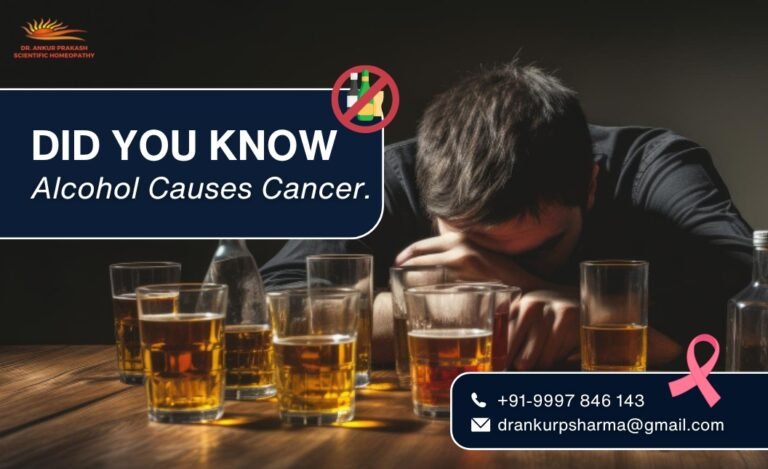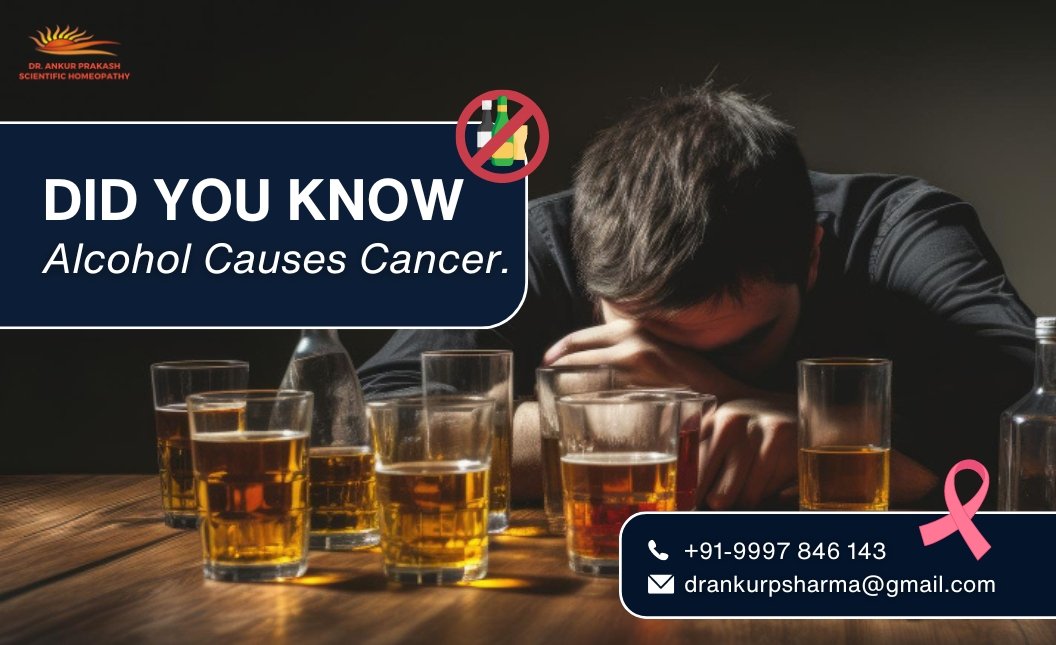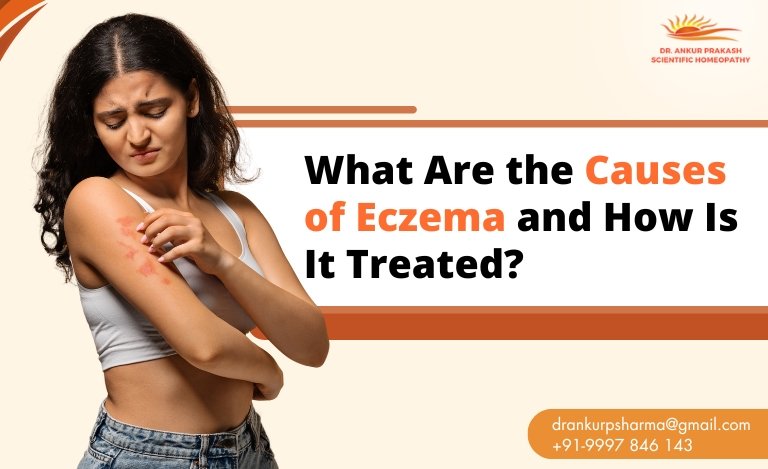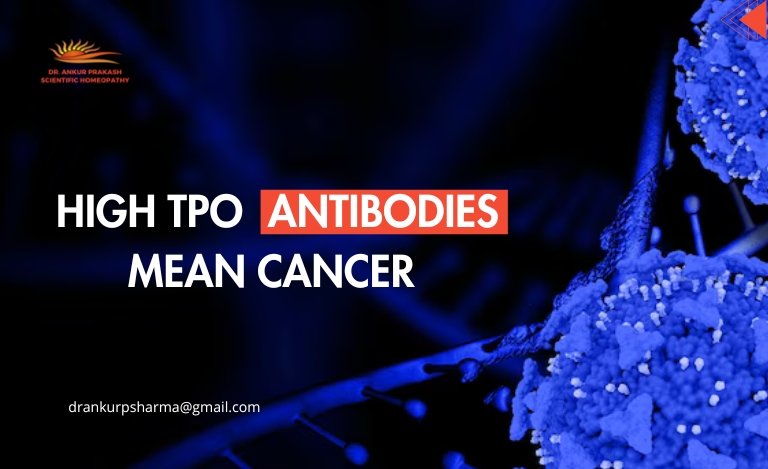
Is Alcohol Cancer Causing
When consumed, alcohol undergoes a transformation in the body, producing acetaldehyde, a substance recognized for its potential to damage DNA and create harmful changes in cells. This process can lead to an increased risk of developing cancer over time. The relationship between alcohol and cancer is complex, influenced by factors like the amount and type of alcohol consumed. While moderate drinking may carry lesser risks, habitual or excessive alcohol consumption has been linked to a higher likelihood of cancer in various organs, emphasizing the importance of moderation or abstinence for long-term health.
Causes
Alcohol can cause cancer through various mechanisms:
DNA Damage: Alcohol metabolism produces harmful chemicals that can damage DNA, leading to mutations and cancerous cell growth.
Oxidative Stress: Reactive oxygen species generated during alcohol metabolism can cause oxidative damage to cells, promoting cancer development.
Disruption of Cell Cycle: Alcohol interferes with the normal regulation of cell division and growth, potentially leading to uncontrolled cell proliferation characteristic of cancer.
Increased Estrogen Levels: Alcohol consumption can elevate estrogen levels, which may contribute to the development of hormone-related cancers like breast cancer.
Weakening Immune System: Chronic alcohol consumption weakens the immune system, reducing the body’s ability to detect and eliminate cancerous cells.
Enhanced Carcinogen Activation: Alcohol can enhance the activation of carcinogens from tobacco smoke or other sources, increasing cancer risk, especially in the mouth, throat, and esophagus.
What Types of Cancer Does Alcohol Cause?
Alcohol consumption has been scientifically linked to an increased risk of several types of cancer. Understanding these associations can help individuals make informed choices about their alcohol intake. Here’s a closer look at the specific cancers that alcohol can provoke:
Breast Cancer: Research indicates a correlation between alcohol consumption and an elevated risk of breast cancer. Alcohol can alter estrogen levels and other hormones associated with breast cancer. Even light drinking may marginally raise the risk.
Liver Cancer: Alcohol is a known risk factor for liver cancer, primarily because drinking excessively can lead to cirrhosis, a condition in which the liver is significantly scarred and its function is impaired. Cirrhosis increases the risk of developing liver cancer.
Esophageal Cancer: Alcohol consumption, especially of high-proof drinks, can damage the cells lining the esophagus, leading to esophageal cancer. People who metabolize alcohol slowly are particularly susceptible.
Head and Neck Cancer: Alcohol consumption is strongly linked to an increased risk of cancers in the mouth (excluding the lips), throat, and voice box (larynx). The risk is dramatically higher for those who both drink alcohol and use tobacco.
Colorectal Cancer: Studies have shown that regular alcohol consumption can increase the risk of cancers of the colon and rectum. The risk appears to rise with the amount of alcohol consumed.
Stomach Cancer: Alcohol can also increase the risk of stomach cancer, particularly in conjunction with other risk factors like smoking or a diet high in processed foods and salts.
The risks associated with alcohol and cancer are dose-dependent, meaning that higher levels of alcohol consumption correlate with greater cancer risks. Reducing alcohol intake can significantly lower the risk of developing these cancers, providing a compelling case for moderation or abstention to promote overall health and longevity.
Symptoms
Symptoms of cancers related to alcohol consumption can vary depending on the type of cancer. However, early detection is crucial for effective treatment. Here are common symptoms associated with different types of alcohol-related cancers:
Breast Cancer:
New lumps or thickening in the breast or underarm area.
Changes in the size, shape, or appearance of a breast.
Alterations to the skin on the breast, like dimpling.
Nipple discharge other than breast milk, sometimes containing blood.
Liver Cancer:
Unexplained weight loss and loss of appetite.
Upper abdominal pain or swelling.
Jaundice (yellowing of the skin and eyes).
General weakness and fatigue.
Nausea and vomiting.
Esophageal Cancer:
Difficulty swallowing or painful swallowing.
Weight loss without trying.
Chest pain, pressure, or burning.
Worsening indigestion or heartburn.
Coughing or hoarseness.
Head and Neck Cancer:
A persistent lump or sore that doesn’t heal.
A sore throat that persists.
Difficulty swallowing.
Changes in voice, including hoarseness.
Unexplained weight loss.
Colorectal Cancer:
Changes in bowel habits, such as diarrhea or constipation.
Rectal bleeding or blood in the stool.
Persistent abdominal discomfort, such as cramps, gas, or pain.
A feeling that the bowel doesn’t empty completely.
Weakness or fatigue.
Stomach Cancer:
Indigestion or a burning sensation (heartburn).
Appetite loss.
Pain in the stomach area.
Nausea and vomiting.
Weight loss without trying.
If you notice any of these symptoms and have a history of alcohol consumption, it is essential to consult a healthcare provider for a thorough evaluation. Early detection can significantly improve the effectiveness of treatment and increase the chances of successful outcomes.
How Homeopathic Medicine Works in Cancer Treatment?
Homeopathic medicine approaches cancer treatment by aiming to stimulate the body’s natural healing processes. A homeopathic cancer doctor carefully selects highly diluted substances based on the patient’s specific symptoms and overall health profile. This personalized treatment plan, often referred to as Cancer Treatment in Homeopathy, is designed to enhance the body’s immune response and target the unique aspects of the individual’s illness. The philosophy behind homeopathy suggests that substances capable of causing symptoms of illness in healthy individuals can, when highly diluted, treat similar symptoms in sick individuals. However, it’s important to note that while some patients report subjective improvements, the effectiveness of homeopathy in treating cancer lacks strong support from mainstream medical research and is considered controversial within the scientific community. Patients are advised to consult with licensed healthcare providers and consider evidence-based treatments alongside any alternative therapies.
Conclusion
Consulting with a Homeopathic Cancer Doctor can provide an alternative approach for individuals seeking complementary treatments alongside conventional cancer therapies. Homeopathy offers a personalized treatment regimen that focuses on enhancing the body’s natural healing abilities. While it is embraced by some for its holistic approach and minimal side effects, it is crucial for patients to engage with both homeopathic and medical professionals to ensure a comprehensive treatment strategy. Ultimately, the choice to include homeopathy as a part of cancer treatment should be made with careful consideration of its potential benefits and limitations, always prioritizing evidence-based medical advice.
Disclaimer: Before taking any kind of medicine or pursuing alternative treatments, always consult with your doctor to ensure it is safe and appropriate for your health condition.







